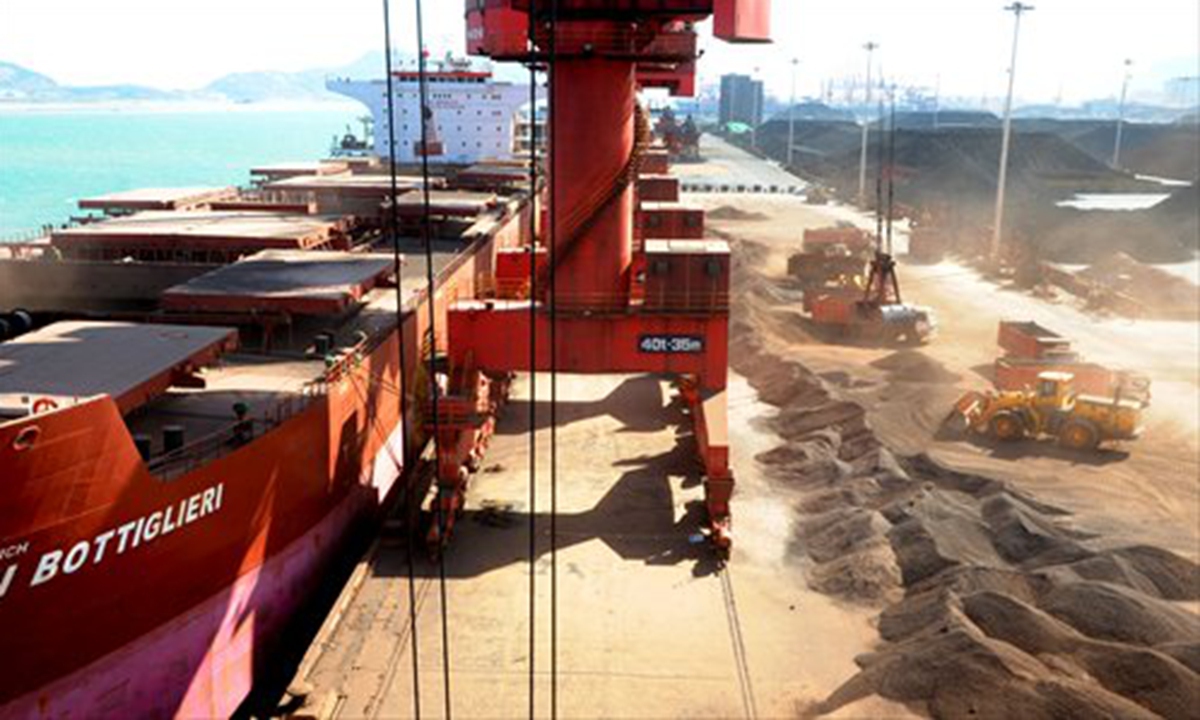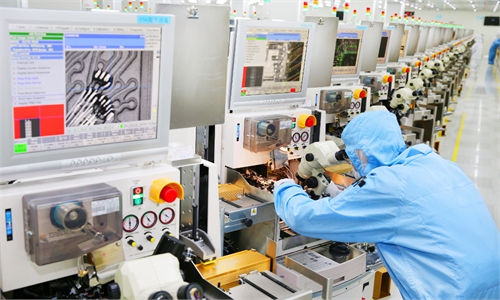GT Voice: US, its allies need to listen to China's warning on key materials exports

A ship unloads rare-earth metals at the port of Lianyungang, East China's Jiangsu Province. Photo: IC
The US has been roping in its allies to escalate the chip war and high-tech crackdown against China, disregarding the potential damage the technological iron curtain may cause to global supply and industrial chains. But now the question is how long Washington can ignore the warning over the consequences when China starts taking legitimate and reasonable measures to safeguard its national security and interests.China will impose export controls on gallium and germanium, two rare elements widely used in the semiconductor industry, starting next month, the Chinese Ministry of Commerce said in a statement on Monday. The controls, which China said were aimed at protecting national security and interests, will require exporters to file an application with local commerce authorities and seek permission by the Ministry of Commerce for the exports of gallium and germanium products.
Compared with the US pressuring allies to cooperate on chip bans against China, China's move this time may be more of a warning, showing that China will not be passively squeezed out of the global semiconductor supply chain. Just a few days ago, the Dutch government announced new restrictions on exports of some semiconductor equipment, indicating that ASML, Europe's largest tech firm, will need to apply for export licenses for products used to make microchips.
While the move may be described by some Western media outlets like CNN as "apparent retaliation after the US and Europe restricted chip exports to China," it should be made clear that China's imposition of export controls on gallium and germanium products doesn't necessarily mean a ban on exports of relevant items. The only difference is that China will meet the needs of the international market under the provisions of the Export Control Law. If the relevant exports involve military use or are used in scenarios that may undermine China's national security and interests, then the relevant authorities have the right to reject the export application so as to safeguard national security and interests.
Even though China is the world's major supplier of gallium and germanium products, which are essential for the making of semiconductors and other electronic components, it should be noted that the US also has large reserves of gallium and germanium resources. According to the US Geological Survey research, the world reserve of germanium has 8,600 tons, among which the US has the most reserve with 3,870 tons accounting for 45 percent, followed by China with 3,500 tons. However, in 1984, the US already classified germanium as a strategic resource, banning it from being exploited in recent years, according to media reports.
On the contrary, for years, China has been exploiting its limited rare-earth resources to supply key rare metals at the expense of the environment to support the development of global strategic emerging industries such as semiconductors. Yet, the US-led chip war has seen China being cut off chip supplies and other relevant equipment, materials and technologies, which is clearly hurting China's interests in terms of the industrial chain, rare-earth resources, and environmental protection.
There are growing signs that the global semiconductor sector will be characterized with more confrontation in the future, rather than simply restructuring of industrial and supply chains. But this is caused by the US violation of the normal order of international trade, which has seriously sabotaged global production chain.
Under such circumstances, why can't China make the necessary adjustments and be more cautious about consuming its limited rare-earth resources to support those that have been sided with the US-led "decoupling" push from China? There's no reason for China to continue exhausting its own mineral resources, only to be blocked from pursuing technological development and being taken advantage of by the world's largest resource holder.
Perhaps the US and its allies once believed China had no way except complaining about US-led "decoupling" in the semiconductor sector, but China's imposition of export controls is a practical way of telling them it's miscalculation. It is advised that all manufacturers involved in US sanctions against China need to see the implication of China's move in being more protective of its own interests on their businesses.


